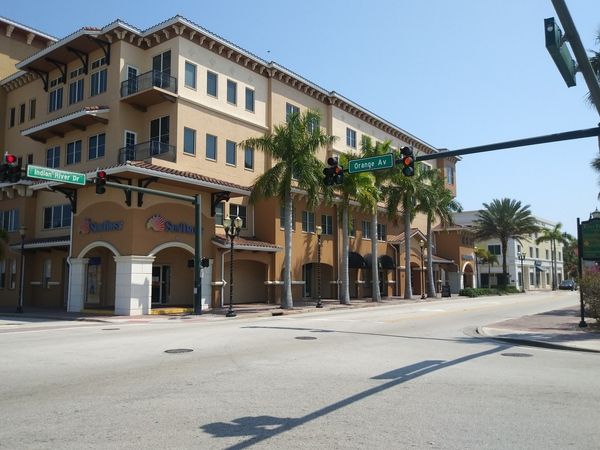SEO is one of the most important aspects of online marketing, but 57% of small business owners don’t have a search engine optimization strategy. Why is this? Probably because they don’t realize how important it is.
In this blog post, we will discuss why every small business needs an SEO strategy and how to go about creating one.
What is SEO and why do you need it?
Search engine optimization is the process of optimizing your website for Google and other search engines. When you do SEO correctly, your website will rank higher in search engine results pages (SERPs), which means more people will see it.
There are many benefits of SEO, including:
– Increased traffic
– Higher conversion rates
– More customers
– Improved brand awareness
SEO is one of the most cost-effective marketing strategies available, and it can be achieved with a relatively small investment.
To create an effective SEO strategy, you need to understand how search engines work.
How search engines work
Search engines like Google and Bing work by indexing websites and then ranking them based on a variety of factors. Google wants to rank the best, most relevant websites at the top of its results pages, so you need to make sure your website’s content is up to par.
Search engine algorithms are constantly changing which affects SEO ranking factors. Ranking factors are the aspects of your website that tell search engines how well your website should rank.
Some common ranking factors include:
– Keywords
– Title tags
– Meta descriptions
– Headings
– Alt text
To rank high in the organic search results for your local business, you’ll need a comprehensive strategy.
How to create a search engine optimization strategy
There are three main steps to creating a successful SEO strategy:
– Keyword research
– On-page optimization
– Off-page optimization
The importance of keyword research
Keyword research is the process of finding the right keywords to target. You want to choose relevant keywords that have high search volume and low competition. You’ll also want to identify long-tail keywords. These keywords have a lower search volume, but they are easier to rank for.
You can use a variety of tools to help you with your research, including:
– Google AdWords Keyword Planner
– SEMrush
– Moz Keyword Explorer
Your keyword strategy will help you build your content marketing strategy. This is important because you’ll want to target keywords in your blog posts, website copy, and even social media posts.
You want to ensure the content ideas you have for your website match potential customers’ search intent. A solid search engine optimization strategy blends both what the Google algorithm is looking for and what your ideal customer is looking for. You want to ensure that when someone comes to your site, the content you provide is valuable and will generate action, like calling your business.
Once you’ve chosen your target keywords, it’s time to start optimizing your website for organic search.
On-page optimization
This is the process of optimizing your website’s pages for the keywords you’ve chosen. This includes things like title tags, meta descriptions, and header tags and is commonly referred to as your core web vitals and/or technical SEO.
Start with web pages that have existing content. For each web page, identify one or two target keywords and then optimize the title tag, meta description, and header tags.
Title tags are the title of your web page. This appears in the search results pages as the clickable headline for your listing.
Your title tag should:
– Be 50-60 characters long
– Include your target keyword
– Be unique for each page
Meta tags (descriptions) are the short descriptions that appear below your title tags in the SERPs.
Your meta descriptions should:
– Be 150-160 characters long
– Include your target keyword
– Be unique for each page
Header tags are the HTML tag used to identify headings and subheadings on a web page. There are six different levels of header tags, from H1 (the most important) to H6 (the least important).
Your header tags should:
– Include your target keywords
– Be used to structure the content on your page
Focus on local SEO by including your local city or county in your page title and meta tags. This will help for search queries that include “near me” or that include your local city name.
Off-page optimization
Off-page optimization is the process of building backlinks to your website. Backlinks are links from other websites that link to your website.
Link building requires creating content that other people will want to link to. This can be done by writing blog posts, creating infographics, or developing helpful resources.
When you create this type of content, reach out to other websites, and let them know about your resource. If they find it valuable, they’ll link to it.
You can also participate in online discussions and forums, or even contribute guest posts to other websites. When you do this, include a link to your website in your author bio.
A good off-page SEO strategy will help improve your website’s search engine rankings and increase traffic from organic search.
Other factors to consider
While working on your SEO strategy, consider these other metrics that also affect your SEO metrics:
Page Speed: This is the time it takes for a web page to load. Google uses page speed as a ranking factor, so improving how quickly your website loads can help improve your website’s rankings.
Internal Linking: This is the process of linking to other pages on your website from within your content. This helps Google understand your website’s structure and can help improve your website’s search engine rankings.
Error pages: 404 pages are the result of a broken link. When someone clicks on a link that doesn’t exist, they’re taken to your 404-error page. This is bad for user experience and can also hurt your website’s search engine rankings.
Make sure you have a custom 404-error page that uses your target keyword and provides links to other relevant pages.
Mobile Optimization: More and more people are using mobile devices to search for businesses and products. Make sure your website is optimized for mobile devices or you could lose traffic.
Assessing your performance
SEO success requires understanding how your website is performing. You can use a variety of free tools like Google Analytics. This tool provides data on how your website is performing, including where your traffic is coming from and what pages are being visited. This is a great way to identify how many website visitors come from organic traffic, Google Ads, or any other marketing campaigns you have running.
In summary
Small businesses need to have a search engine optimization strategy to be successful online. SEO is the process of optimizing a website for search engines, and it can help improve a website’s search engine rankings and increase traffic from organic search. There are several things small businesses can do to improve their SEO, including creating content that other people will want to link to, participating in online discussions and forums, and contributing guest posts to other websites. Additionally, small businesses should make sure their website is optimized for mobile devices and that they are monitoring their website’s performance.



